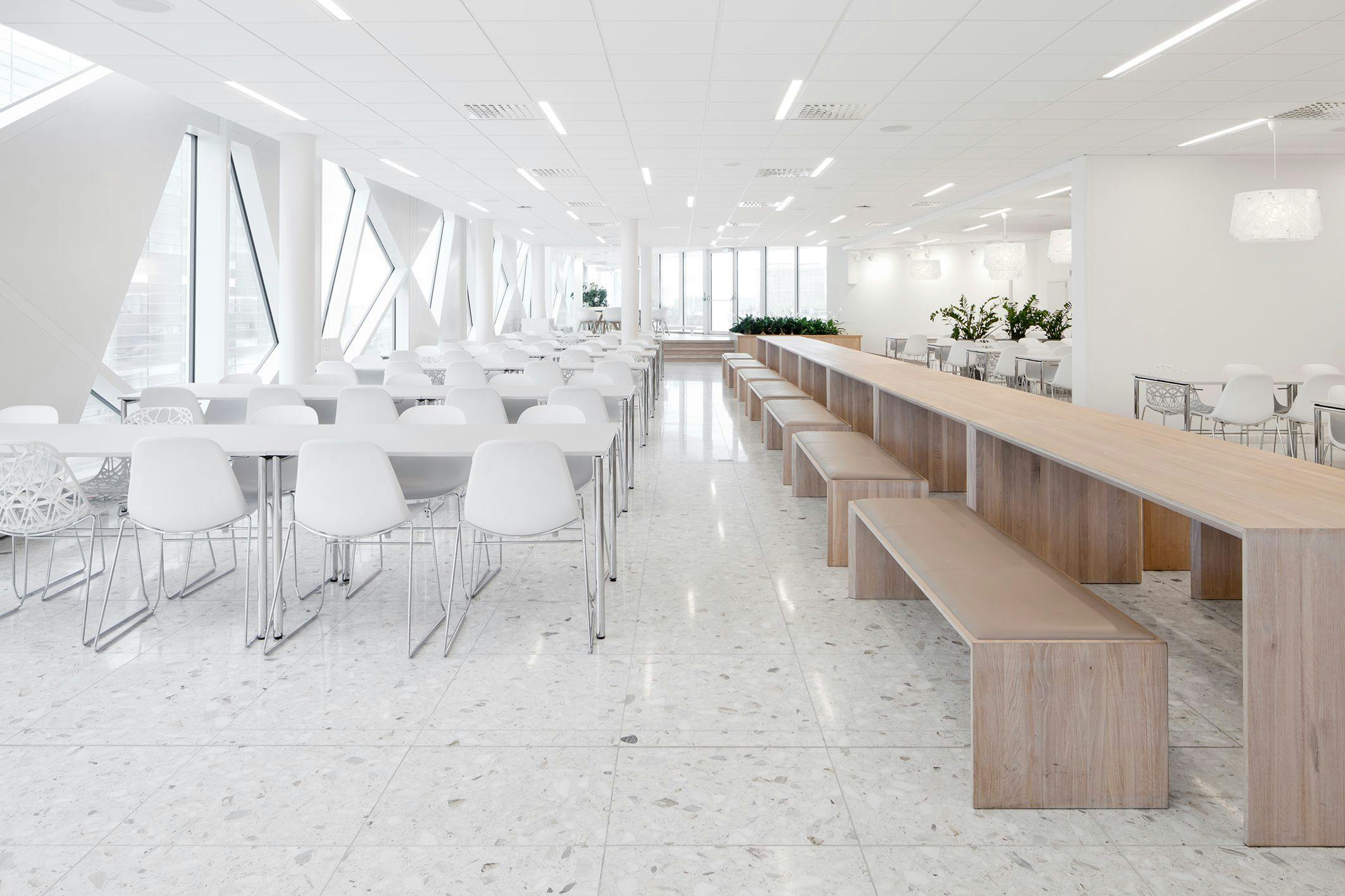Food (R)evolution is Here to Change our Eating Habits
Deloitte employees partake in a project testing new, sustainable food products simply by making their daily visit to their canteen at lunch time.

According to Norway’s national dietary advice, the consumption of sustainable food in Norway is too low, and the development is too slow. To increase speed, changes are required in the food system.
Food producers need less trial and error in product development, the hospitality industry needs supplementary sustainability expertise and consumers want better access to sustainable food alternatives. Enter: Food (R)evolution.
Food (R)evolution arose as an idea during ÆRA’s second food- back in 2019. We asked ourselves what arena we could use to launch sustainable foods at a higher success rate.
- Around 1.1 million lunch meals are eaten in canteens in Norway every day. Therefore, we believe that consumers in large households and HORECA present an effective roadmap into a real dietary change where sustainable and plant-based food replaces less sustainable eating habits, says Karen Byskov, Senior Innovation Lead and Senior Designer in ÆRA. She’s played a decisive role in developing Food (R)evolution.
A couple of years later, we’ve begun the truly fun part of an innovation project: Realizing it as a collaboration between Nofima, Foodback, HOFF, Orkla Foods Norway. Coor and ÆRA. Projected to run until 2024, Food (R)evolution is fueled by The Norwegian Research Council granting the project NOK 12 million for its attempt at changing Norwegians' eating habits for the better.
Canteen-As-a-Lab
Through planned runs of “test days”, Food (R)evolution connects food producers, canteen suppliers, technology and research to attain improved knowledge, expertise and processes around sustainable food production, preparation and consumption.
Canteens serve as their laboratories, where guests are offered the chance to taste new products from different food producers' sustainable initiatives.
Employees experience an exciting canteen offering, focusing on nutritious food for body and planet, as well as refreshing inspiration for how to cook more sustainably at home.
- This tastes great, says one of the canteen guests at Deloitte on a test day in May, who's just eaten a plant-based product that replaces the usual chicken in a red curry dish. When asked if she would follow with buying the product in a store herself, she replies:
- Yes, I would, now that I’ve tasted it, knowing it’s good. She thus confirms one of several hypothesis backing the Food (R)evolution's concept: While we seem to like news in grocery stores, we are also creatures of habits, choosing what is near and dear to our cooking habits. Food (R)evolution’s test days remove that barrier.
The proof? 225 out of a total of 347 canteen guests on this specific test day chose one of two test dishes associated with the Food (R)evolution project.
Unique Project
Calling this project a “canteen revolution” feels fitting, considering the new form of collaboration it brings. A necessary cooperation if we are to change the entire food system.
- This project is unique in the sense that we collaborate with competitors and our customers, allowing for products to be tested fairly and early by the consumer, ensuring that taste stays in focus, says Sustainability Manager at Orkla Foods Norway, Johanna Kjuus.
Special Advisor at the Norwegian Research Council, Trond Einar Pedersen, has great confidence in the support they’ve provided:
- Food (R)evolution is an excellent example of a research and innovation project that contributes to solutions made for, almost by, the consumer. We strongly believe that it will achieve its goals, and thus be a good example to follow for the rest of the food system.
Alongside Deloitte, Equinor, ABB, Aibel, Aker Solutions, Coor, Lyse, SR-Bank Arena, Seabroker Services, Nexans and Anora are all participating in Food (R)evolution, providing their canteens as so-called “test arenas”. The project is therefore already reaching thousands of potential buyers once successfully tested products hit grocery store shelves.
- We hope this is the beginning of a powerful and positive change in Norwegians' eating habits, Karen concludes.
Photo of Deloitte's Bjørvika canteen © iARK


